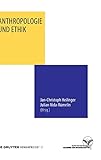Anthropologie und Ethik / hrsg. von Jan-Christoph Heilinger, Julian Nida-Rümelin.
Material type: TextSeries: Humanprojekt : Interdisziplinäre Anthropologie ; 12Publisher: Berlin ; Boston : De Gruyter, [2015]Copyright date: ©2015Description: 1 online resource (224 p.)Content type:
TextSeries: Humanprojekt : Interdisziplinäre Anthropologie ; 12Publisher: Berlin ; Boston : De Gruyter, [2015]Copyright date: ©2015Description: 1 online resource (224 p.)Content type: - 9783110412888
- 9783110412949
- 9783110412918
- 171/.7
- online - DeGruyter
- Issued also in print.
| Item type | Current library | Call number | URL | Status | Notes | Barcode | |
|---|---|---|---|---|---|---|---|
 eBook
eBook
|
Biblioteca "Angelicum" Pont. Univ. S.Tommaso d'Aquino Nuvola online | online - DeGruyter (Browse shelf(Opens below)) | Online access | Not for loan (Accesso limitato) | Accesso per gli utenti autorizzati / Access for authorized users | (dgr)9783110412918 |
Browsing Biblioteca "Angelicum" Pont. Univ. S.Tommaso d'Aquino shelves, Shelving location: Nuvola online Close shelf browser (Hides shelf browser)

|

|

|

|

|

|

|
||
| online - DeGruyter Die Verfolgung und Ermordung der europäischen Juden durch das nationalsozialistische Deutschland 1933–1945. Band 11, Deutsches Reich und Protektorat Böhmen und Mähren April 1943 – 1945 / | online - DeGruyter Die Kunst des Herrn Nestler : Bildhauer, Zeichner und Performer / | online - DeGruyter Erfolgreich recherchieren Jura / | online - DeGruyter Anthropologie und Ethik / | online - DeGruyter Knowledge Management in Libraries and Organizations / | online - DeGruyter Global Library and Information Science / | online - DeGruyter Kosten- und Leistungsrechnung in der Spedition : Grundlagen und praktische Anwendungen / |
Frontmatter -- Vorwort -- Inhalt -- I Grundlagen -- Plädoyer für eine normative Anthropologie -- The anthropological turn -- Pragmatistische Anthropologie und Ethik in Anwendung: eine philosophische Skizze -- Ethik als Technik der Kultur -- II Kontexte -- Normative Selbstverhältnisse und pragmatische Anthropologie -- Das Menschenbild des Rechts -- Mensch, Weltbürger -- Personale Identität und die Rolle des subjektiven Erlebens -- Tugendethik und Verantwortung -- Moral im System -- Paläoanthropologie im Spannungsfeld von Wissenschaft und Geschichte -- Anthropologie – Wirtschaft – Ethik -- Autoren -- Register
restricted access online access with authorization star
http://purl.org/coar/access_right/c_16ec
Der Zusammenhang zwischen Anthropologie als dem philosophischen Nachdenken über Menschen und Ethik als dem gründlichen Nachdenken darüber, was Menschen tun sollen, ist eng und vielfältig. Die Autoren in diesem Band wenden sich aus verschiedenen disziplinären Perspektiven diesem Thema zu und diskutieren folgende Fragen: Gründen moralische Normen auf der Natur des Menschen oder gelten sie unabhängig davon? Berücksichtigt die Ethik menschliche Schwächen, oder gelten die Anforderungen der Moral absolut? Wenn sich der Mensch verändert, etwa evolutionär oder durch biotechnologisches Enhancement, verändern sich dann auch die Anforderungen der Moral?
The relationship between anthropology as the study of human beings and ethics as the study of what humans ought to do is close and multifaceted. The authors address the following questions: Are moral norms grounded in human nature or are they independent of it? Does ethics take into account human weaknesses or is morality absolute? If people change, do the requirements of morality change as well?
Issued also in print.
Mode of access: Internet via World Wide Web.
In German.
Description based on online resource; title from PDF title page (publisher's Web site, viewed 28. Feb 2023)


